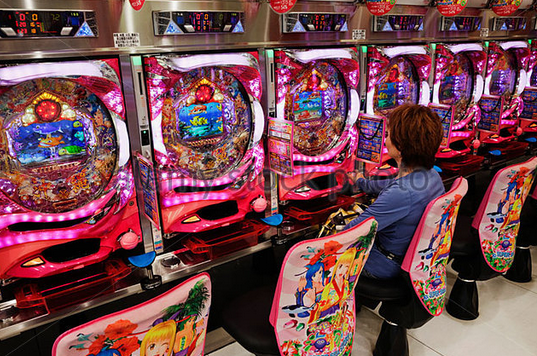 Japan is a top tourist destination with its unique culture and history. There are no other countries that have such an interesting vibe like Japan. The extreme adoration for anime is also typical for Japan – anime is a style of Japanese film and television animation, typically aimed at adults as well as children. If you have been to Japan, you have probably seen the Japanese Pachinko Machine that is a ’vertical pinball machine’ and looks like an over the top pokies machine. It is a vital piece of Japanese gambling history. If this is the first time you are hearing about Pachinko, this guide will be very useful giving you everything worth knowing about this odd way of Japanese gambling.
Japan is a top tourist destination with its unique culture and history. There are no other countries that have such an interesting vibe like Japan. The extreme adoration for anime is also typical for Japan – anime is a style of Japanese film and television animation, typically aimed at adults as well as children. If you have been to Japan, you have probably seen the Japanese Pachinko Machine that is a ’vertical pinball machine’ and looks like an over the top pokies machine. It is a vital piece of Japanese gambling history. If this is the first time you are hearing about Pachinko, this guide will be very useful giving you everything worth knowing about this odd way of Japanese gambling.
Gambling (so online gambling casinos as well) is still illegal in Japan, but horse racing, bicylce racing and boat racing are allowed. The Japanese Criminal Code 1948 legislates that gambling activities not under control of the government are forbidden – so casinos, lotteries, and even games of chance. Pachinko, however, is much more tolerated by the Government and Japanese always find their way around the tight legislation to play with their favourite and most addictive games. Pachinko Machine involves small 11 mm sized steel balls that players have to purchase or rent from the Pachinko Machine operator.
These steel balls are used instead of money or coins. Pachinko players shoot these steel balls along a metal track just like in a pinball machine. The balls then make their way around the metal track until they drop into the field of play where there are pins, bumpers, traps and cups which determine the result of the game. Once your ball lands in a cup you win a prize, but if the ball doesn’t land in a trap or cup – it will end up in the ‘catcher’ meaning the Pachinko Machine wins, and the player loses.
If you do not know what a Pachinko Machine looks like, think of it as a perfect fusion of pokies and anime. Nowadays, the machines are infused with screens and their features are linked to cool anime themes, just like video pokies. Guess what, with about 10 million regular players of Pachinko, the industry in Japan earns more than the combined revenue that is generated by all the casinos in Las Vegas (thus a real money spinner) – unbelievable for a country that made gambling illegal!
The history of Pachinko dates back to the early 1920s, the first version of the game was called the ’Corinth Game’ which was supposed to be a children’s toy. In 1948 after World War II – the very first Pachinko Machine parlour opened to make it possible for adults to play the game in larger format. In the 1990s the game of Pachinko was in its heyday, with more than three times the current player base – the Japanese were spending over 30 trillion yen each year on Pachinko (that is $411 billion AUD), as well as causing huge social problems all over Japan.
There were cases of children left and died in cars, while their mums played in Pachinko parlours. Pachinko in Japan is still so popular that players are spending 23.3 trillion yen each year. Although technically illegal, and it is considered as a dirty business, many of the Pachinko Parlour owners are in fact operated under Korean ownership. The Japanese governement is aware of the fact that the legalisation of gambling can generate a lot of money for the economy, therefore the discussions concerning the legalisations of gambling have been ongoing for years.
For a society so interested in gambling and love to play Pachinko, it is indeed a hard decision for the Japanese government to make. They are also considering making it legal due to the upcoming 2021 Olympic Games in Tokyo, even if this is just temporary for the games!
When playing Pachinko in Japan, you have to make sure you stick to the three unwritten rules as follows:
- You need a poker face. Players must not show any emotion, whether you win or lose – you need to look the same, especially in a crowded Pachinko parlour.
- Never pick up a full tray of steel balls, always call over an attendant who will be happy to help you.
- Be careful where you walk in the tight Pachinko parlour. If you kick someone’s tray by accident, you will not be a popular person for sure.